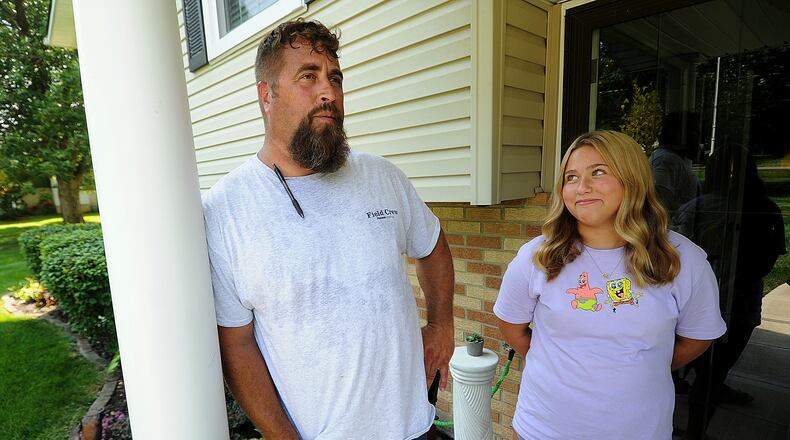PFAS stands for per and polyfluoroalkyl substances. They are resilient chemicals that take thousands of years to break down. Studies have shown long-term exposure to PFAS has been liked to health problems including kidney and liver damage and certain kids of cancer.
A Dayton Daily News analysis of Butler Twp. sampling results obtained through a public records request shows 85 of the 155 locations sampled from 2022 through the start of this year had undetectable levels of PFAS. Another 68 locations detected PFAS, but under Ohio EPA’s current action level of 70 parts per trillion (ppt). Two tested above 70 ppt.
However, if the U.S. EPA’s proposed legal standard for public water systems applied to private wells, 34 locations would have exceeded the maximum contamination level of 4 ppt. The proposed standard represents the most a toxin can contaminate drinking water before there are known or anticipated negative health effects, according to the U.S. EPA.
A part per trillion is equal to a grain of sand in an Olympic-sized swimming pool.
The highest testing result was from a residence on Frederick Pike, coming in at 158 ppt for PFOA and 35 ppt for PFOS during its highest test. PFOA and PFOS are common types of PFAS.
Also testing high for PFAS was a residence on Jackson Road, which had PFOA levels of 62.1 ppt and PFOS levels of 58.3 ppt during its highest test.
‘At a standstill’
Frederick Pike was the site of the most samples taken during the testing period, seeing nearly 50 samples collected from private wells.
Lance Hoop has lived at his Frederick Pike home with his family for 13 years. He was happy to see that the county was running tests in his area, as PFAS water tests can run from $600 to $1,000.
He said after he received his well sampling results, which showed undetectable amounts of PFAS, he didn’t hear anything new from the township.
“It kind of just feels like we’re at a standstill,” he said. “I’m not sure what the plan is after this.”
What he does know is that he doesn’t wish to use his well for drinking water. He and his family opt for bottled water out of caution.
One of Hoop’s neighbors, Bob MacPherson, also made life adjustments after learning more about water contamination. The man said he, his family and his pet Rottweiler have been drinking bottled water exclusively. But this stemmed from a concern with nitrate in water, not PFAS.
The man also went to the lengths of converting a swimming pool into a fish pool.
MacPherson said his well was tested for PFAS, but he did not receive results from his test. Sampling records, which the newspaper shared with the man, show PFAS weren’t detectable in his water.
Butler Twp. Administrator Erika Vogel said Bennett and Williams — the consultant hired to collect samples — sent letters or emails to all residents who were tested. Those who are missing their results can contact the township office.
‘I’ve used my well for years’
Retta Brandenburg, a longtime Butler Twp. resident, said she first heard of PFAS chemicals in 2020 when the Ohio EPA detected forever chemicals in nearby Aullwood Farm’s public water system. Tests at that point showed PFAS levels of 96 ppt.
The Ohio Department of Health issued a citizens advisory to all residents within the impacted area, which includes Jackson, Old Springfield, Kley, Kershner West National and Dog Leg Roads, as well as Frederick Pike.
Brandenburg and others read about the issue every week and attended community meetings about the contamination.
Her well was tested through the county and township’s sampling program, and her water came back as having an undetectable amount of PFAS.
Butler Twp. for a time offered to pay the $1,000 connection fee for residents to tap into Union’s water line on Martindale Road and Frederick Pike. Vogel said only one location opted for this option.
Brandenburg said she did not wish to connect to a city water line, as she favors well water over city water.
“I’ve used my well for years. I love the taste of my water,” she said. “And you can use all the water you need to.”
About the Author


